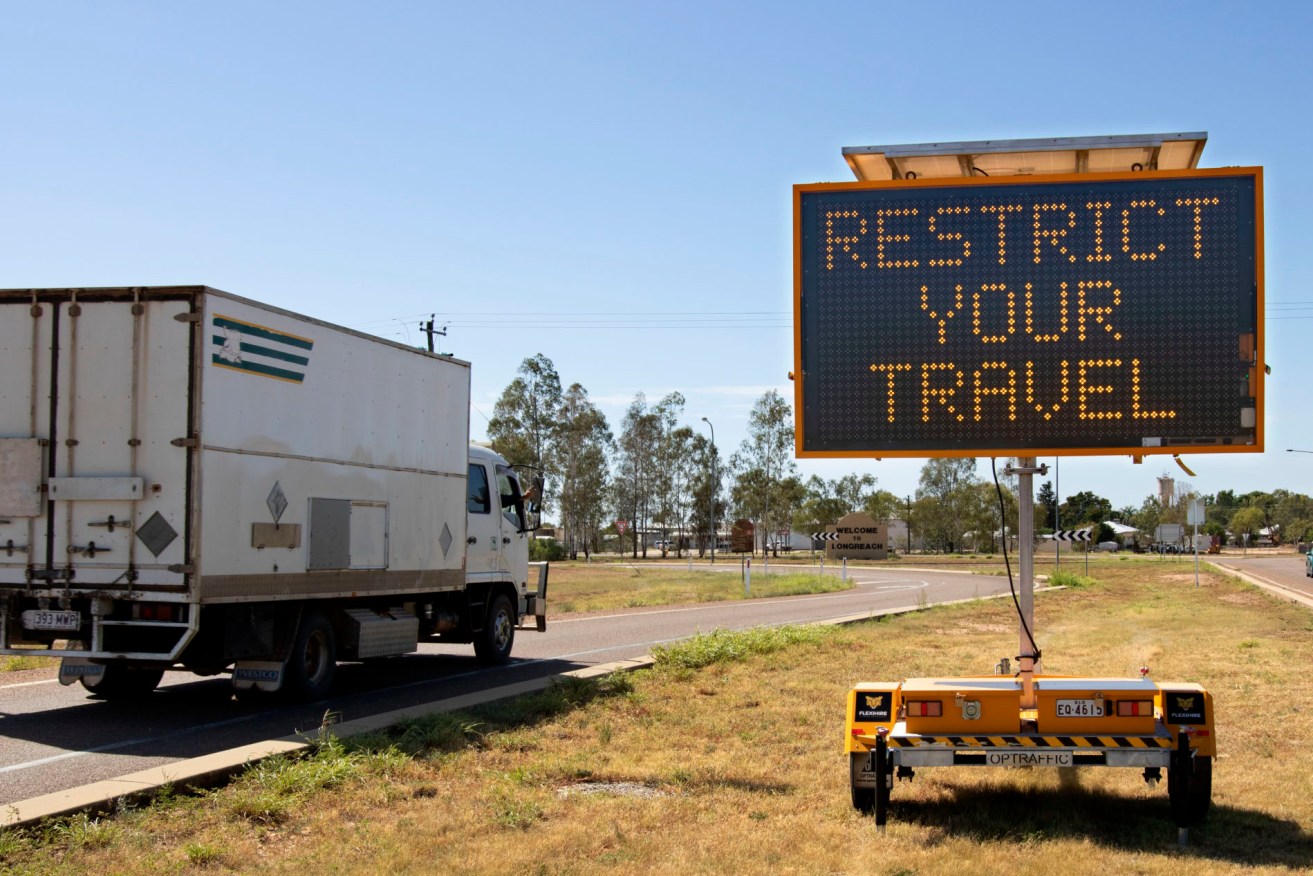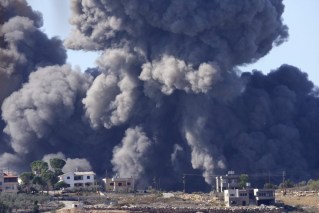Half of Qld is virus-free – here’s how they’re keeping it that way
The vast majority of Queensland is coronavirus free and is taking desperate measures to keep it that way as long as possible.


Virus-free communities are growing angry about closures caused by infections in the state's southeast
Councils representing 60 per cent of Queensland’s total area have united to close their doors and tell tourists they are not welcome and should go home.
The outback has no cases of the virus, so 21 local government areas are setting up signs in key locations over more than one million square kilometres asking visitors to come back next year.
The move has been prompted by concern for vulnerable Indigenous residents and fear that grey nomads see the bush as a safe and clean destination to wait out the pandemic. Councils are also concerned that, should there be an outbreak, there is insufficient medical cover to treat it.
The Diamantina Shire has 120 residents in its unofficial capital Birdsville, where the state borders have been closed to the west and south.
Before the closure, Mayor Geoff Morton said they moved on eight caravans of grey nomads who were waiting for more friends to arrive with the intention of setting up in the town for an indefinite period.
“We only have a very small clinic, one registered nurse and if things go pear-shaped, she’ll be overwhelmed and there will be no facilities left for the locals,” Morton said.
Protecting the community will come at a great cost.
The bar at the Birdsville Hotel has been closed, 13 staff have been let go and three remain to serve takeaways just as the tourist season is starting.
“It’s usually full bore ahead, people are starting to string in and they are going to do it very, very tough but that’s just one of those things our health is far more important,” he said.
‘Tourists we love you, but we’ll love you a lot more next year”, has become the Mayor’s mantra.
In the northwest, local government areas have joined the movement and want more support.
Greg Hoffman, executive officer with North West Regional Organisation of Councils, explained approaches are being made to the State Government to formally back the move.
Longreach Regional Council is actively deterring visitors with signage, has closed council’s free camping zones and has called on Outback Queensland Tourism Association to stop marketing the Outback and instead spread the word the region is closed.
The decision has not been made lightly, a new report into the value of tourism in central west has found visitors spend more than half a billion dollars a year.
The closure of the Qantas Founders Museum this week has pulled an annual wage spend of $1.4 million from the Longreach economy, the Australian Stockman’s Hall of Fame across the road has also closed and in Winton, the Australian Age of Dinosaurs has stood down two-thirds of its workforce.
Leonie Nunn is Longreach Regional Council’s Acting Mayor while Mayor Ed Warren is in self-isolation after meeting with Senator Susan McDonald, who contracted the virus.
“It has a far-reaching effect on our businesses who rely on that tourist season, out here we are all in tourism to some degree so it was a really, really difficult decision to make but there was no alternative,” she said.
In a region with no intensive care beds, Longreach-based GP and President of the Rural Doctors Association of Queensland, Dr Clare Walker, is applauding the move.
“It is completely irresponsible for these people to come and establish themselves in these communities it is also unrealistic to think that you could be self-sufficient for six months.
“Coronavirus lives on surfaces and things like service stations and visiting shops and doing these normal daily activities can spread the virus from person to person,” she said.
Aside from the extra pressure tourists over 60 could place on the local clinics and hospitals, Walker was also concerned about the availability of medivac retrievals.
“Even if a small number of this population gets sick they can tie up retrieval services for days trying to get them from a very remote place back into the city, we already see this happening year in year out,’ she said.
Despite the enviable COVID19 clear status of the region, Walker said its arrival was inevitable.
“Local community members are going to become unwell and we know that there is going to be a high demand, so any arrival of outside holidaymakers is going to dilute the services available for the local population,” she said.
When Nicole Bond is not writing for InQLd she is the part-time media adviser for the Remote Area Planning and Development Board.








